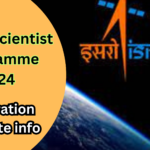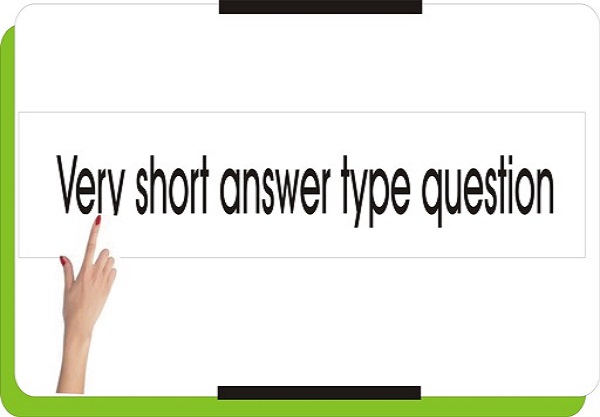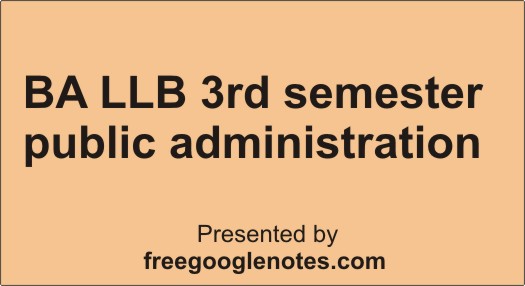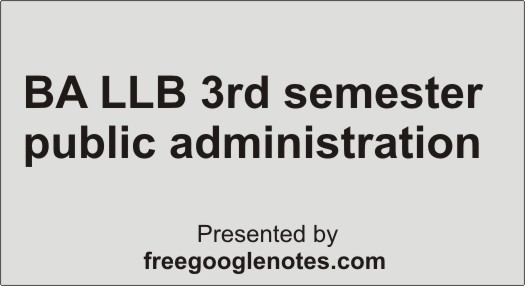Table of Contents
Q. 1. Give a classical definition of Political Science ?
Ans. Bluntschli : “Political Science is the science which is concerned with the state, endeavour to understand and comprehend the state in its essential nature, various forms, manifestations and development.”
J. Seeley, “Political Science investigates the phenomena of government as political economy deals with wealth, biology, with life, algebra, with numbers, and geometry with space and magnitude.”.
Q. 2. Give a modern definition of Political Science.
Ans. David Easton, “Political-Science is concerned with all those varieties of activities that infiuence significantly the kind of authoritative policy adopted for a society and the way it is put into practice and the authoritative allocation of values of a society.” He further says that political science is “the process by which scarce resources human, economic, spiritual are allocated within a social limit, be it a city, a state, a nation or an organisation for the purpose of providing for human needs and desires.”
Q. 3. Define State in short.
Ans. B.I. Hegal, “It (state) is the realisation of freedom, i.e. of the absolute final aim and that the state exists for its own sake.”
Phillimare, “The state is a people permanently occupying a fixed territory bound together by common laws, habits and customs into one body politics, exercising through the medium of an organised government, independent sovereignty and controlover all persons and things within its boundaries capable of making war and peace and of entering into all international relations with the communities of the globe.”
Q. 4. Give the importance of Rousseau’s Theory of Social Contract.
Ans. (1) Rousseau opposed absolute kingship and justified revolutions against despotic monarchy.
(2) He proposed direct democracy and opposed indirect democracy.
(3) He found distinction between state and government.
(4) The concept of General will became the forerunner of modern idealism in political thought.
(5) Rousseau gave the concept that “will and not force is the creator of the state.”
(6) Rousseau proposed the concept of popular sovereignty. He advocated people’s right.
Q. 5. Define the concept of Sovereignty.
Ans. Jean Bodin, “Sovereignty is the supreme power and subjects unrestrained by laws.”
is the supreme power over citizens Fredrik Polluck: “Sovereignty is the supreme power which is
Neither temporary nor delegated nor subject to rules which it can not alter nor answerable to any other power on earth.”
Duguit, “Sovereignty is the commanding power old the state, it is the will of the nation organised inthe state, il is the right give unconditional orders to the individuals in the territory of the man
Q. 6. Explain the concept of Internal Sovereignty.
Ans. Internal Sovereignty means the supreme power of the state in relation to a society that falls under its government. It implies the power of the state to make laws and enforce them over all individuals and their associations within its territory. It’s word is final in internal affairs.
Laski says, “Sovereignty issues orders to all men and all associations within that area, il receives orders from none of them. Its will is subject to no legal limitation of any kind. What is proposed is right by mere announcement of intention.”
Q. 7. Give the definition of ‘Socialism’.
Ans. Socialism is that policy or theory which aims at securing by the action of certain democratic authority a better distribution and in subordination thereto, a better production of wealth than now prevails. In other words we can say, “Socialism is the political movement of the working classes which aims to abolish exploitation by means of the collective ownership and democratic management of the basic instruments of production and distribution.”
Q. 8. Describe the Socialist functions of the state in short. Ans. Under Socialism a state is expected to :
(1) Reject capitalism as an economic philosophy.
(2) To end exploitation of the poor.
(3) To check concentration of wealth in a few lands. (4) To avoid hoarding and black marketing of essential
commodities.
To remove artificial scarcity and profiteering,
To halt the deliberate and mischievous economic upheavals form of booms and depressions.
To reach the goal of collective ownership of the means of production management of resources and control in distribution by abolishing private property.
Q. 9. Write a short note on ‘Dictatorship’.
Ans. In the words of Alfred Cobban, “Dictatorship is the government of one man who has not obtained his position by inheritance, but by force or consent, or a combination of both. Absolute. sovereignty vests in him. Political power ultimately émanates from his will and is unlimited in scope. It is exercised in an arbitrary manner, by decree rather than by law.”
According to Ford, “Dictatorship is the assumption of extra-legal authority by the lead of the state.”
Q. 10. Write down the demerits of the Dictatorial Government.
Ans. (1) It does not give any importance to individual in the governance of the country.
(2) It does not allow any civil or political rights.
(3) Based on force, it uses more violence and uses force in their relations with other countries.
(4) It does not consider the public opinion.
(5) It does not allow moderation of actions and toleration of others vies and does not help in the maintenance of internal or international peace.
(6) It considers that state takes as an end in itself.
Q. 11. Define the concept of Democracy.
ans. The term Democracy was first used by Herodotus nearly 2500 years ago. Democracy is not only a form of Government, but also a way of life and a compound of Several elements, viz….. political ideals, economic and social forces, ethical principles.
Plato defined democracy as “a rule of ignorance.” Aristotle defined democracy as “the Governme
many. perverted souls.”
Abraham Lincon gives a very simple, easy and popular definition of democracy as, “Democracy is government by the people, of the people and for the people.”
Q. 12. Write a short note on “Military Rule”.
Ans. Under Military rule, the state is administered by the military force or under the supervision of military persons. There is no militarisation. In military rule the civilians are replaced by armed forces in the administration.
Military rule is of two kinds : Direct and Indirect. It is direct when the military commanders assume power and form the Government. It is Indirect when the military exercised power through its control over the civilian administration. In both cases, the decision-making-power belongs to the military.
Q. 13. Write a short note on ‘Federal Government’.
Ans. A federal government is a dual government. The word ‘federal’ is derived from the Latin word ‘Focus’ which means ‘treaty: or agreement.”
: Montesquieu : “A constitution by which several similar states, agree to become members of a large one is a Fedral Government.”,
In the words of Garner, “Federal Government may be defined, as a system of Central and local government combined under a common sovereignty, both the central and local organisations being supreme within definite spheres, marked out for them by the general constitution or by the act of parliament, which creates the system. It is dual government as disting wished from unitary government and implies local self government as opposed to centralised government.”
Q. 14. Describe the merits of Federal Government’.
Ans. (1) A federation prevents rise of singe despotism. (2) Federation protects the political liberty of the citizens.
(3) Federalism allows experiements in local legislation and administration that might not suit the entire country.
(4) In Federal state, the growth of bureaucratic authority is under check. Administrative efficiency increases.
(5) Federation is necessary for big democratic countries in the present age.
(6) Division of powers between the Central Government and provincial governments relieves the Central Government of many burdensome functions.
(7) Federal Government provides for the pooling of all the resources and achieve rapid economic development.
Q. 15. Explain the concept ‘Subordinated Legislation’.
Ans. Delegated legislation is defined as the exercise of minor legislative power by subordinate authorities and bodies in pursuance of statutory authority given by the parliament itself.’
Delegated legislation refers to the law making power conferred by the legislature on the executive. As this power is not an original power and as it is entrusted by the legislature to the executive, it is also known as ‘derived legislation’ or ‘subordinate legislation or executive legislation’ or ‘sub-legislation’.
The delegated legislation is used in two sense :
(1) It refers to the powers delegated to the executive to make rules.
(2) It means the output of the exercise of that power namely, rules, regulations and orders etc..
Q. 16. Define the concept of “Public Opinion’. .,
Ans. According to Lord Bryce, “Public Opinion is commonly used to denote the aggregate of the views men hold regarding matters that affects or interests the community. Thus understood, it is a mixture of all sorts of different notions, beliefs, fancies, prejudices, aspirations
As per Herold Losswell, “In order that an opinion may be public a majority is not enough and unanimaity is not required, but the opinion must be such that while the majority may not share it, they feel bound by conviction, not fear, to accept it and if democracy is complete, the submission of the minority must be given ungrudgingly.”
Q. 17. Explain the condition which are required for the formation of sound Public Opinion ?
Ans. (1) An educated society is needed. People should have the capacity, interest and the freedom of thinking.
(2) People should be politically alert. A keen and consistent interest in the matters of public importance is a contributory factors necessary for the formation of Sound Public Opinion.
(3) An active political participation of political like’ is conducive for the formation of sound public opinion.
(4) Articulation of free and fair public-opinion is possible largely through interaction among the various sections of the people.
(5) The Sound public-opinion depends mostly upon the quality and character of political leaders.
Q. 18. Explain in short, the role or importance of public-opinion.
Ans. (1) Controls the Government : It is remarked that an alert and enlighten public opinion is the first essential of democracy. It makes and makes the government.
(2) Influences Governmental Policies : Public Opinion does not allow the government to pass those laws which are against the interests of the people.
(3) Makes Laws Successful : The success or failure of laws of the government depends upon the opinion of the people.
(4) Protects Liberty : Public-Opinion is the only means to check against the despotic tendencies of the government. It keeps the rulers on the right track and protects the liberty of the people.
(5) Social Force : Public opinion is a strong social force is the modern democratic states. The legislators can not win the elections again if they ignore public opinion









